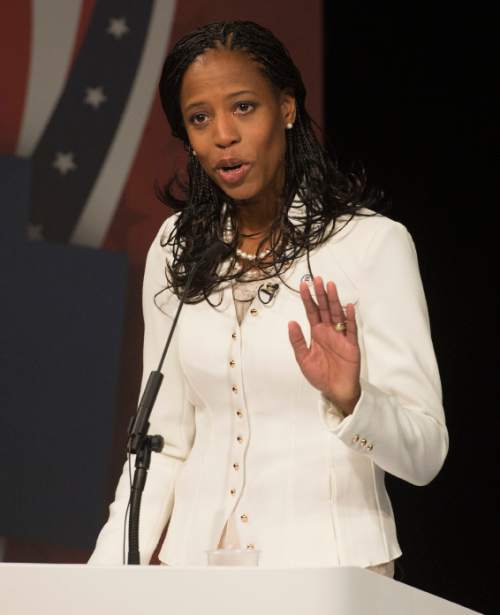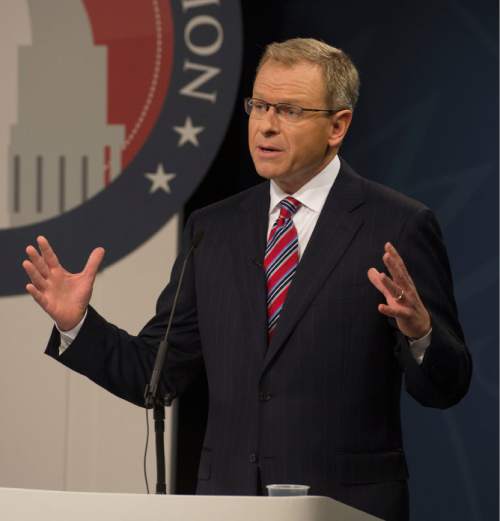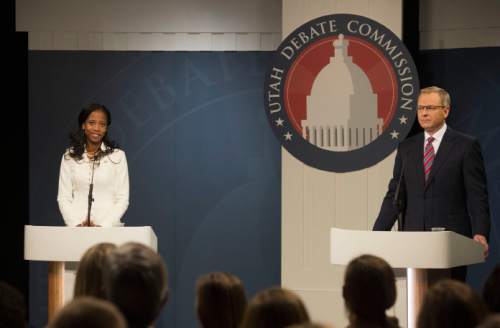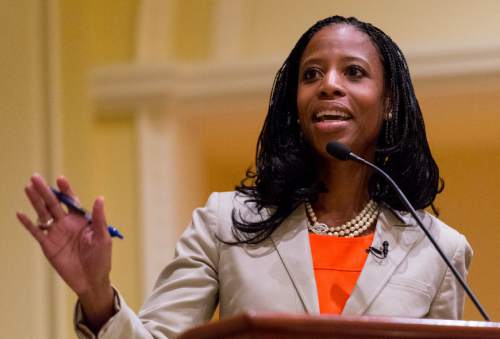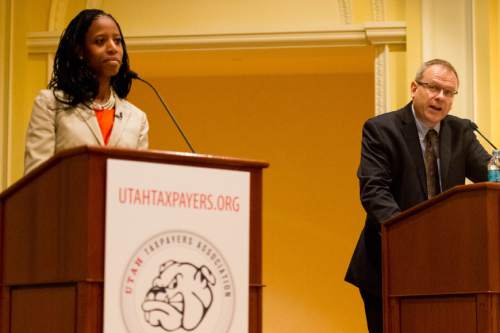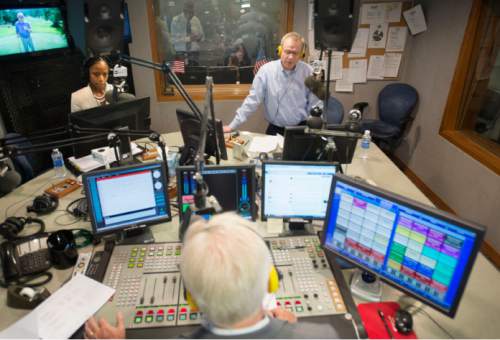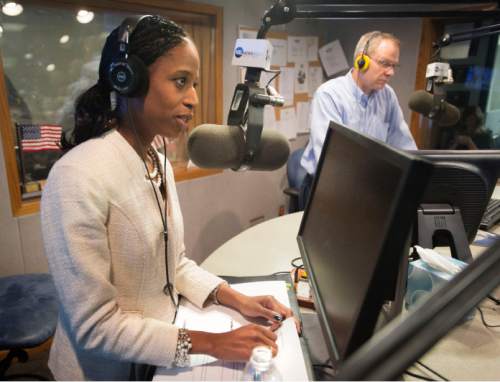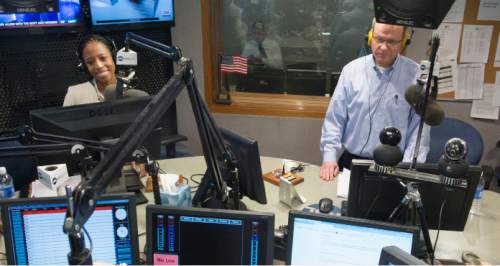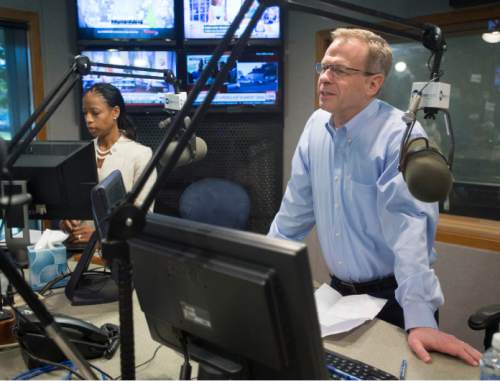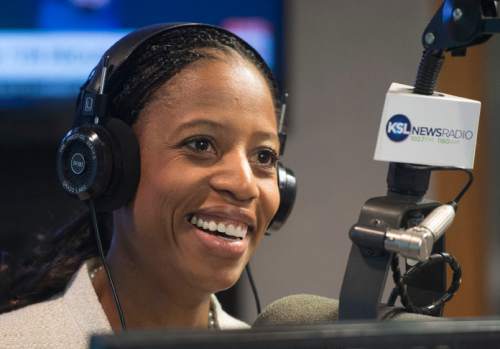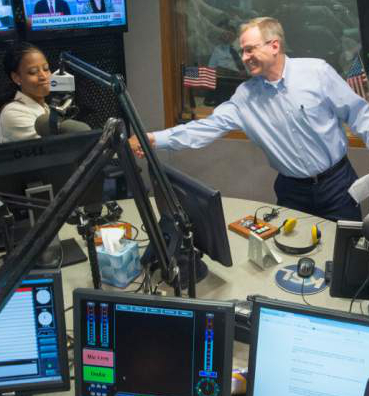This is an archived article that was published on sltrib.com in 2014, and information in the article may be outdated. It is provided only for personal research purposes and may not be reprinted.
Utah's marquee congressional matchup has been tightening, but a new poll shows Republican Mia Love still leads, now with a 5-point edge over Democrat Doug Owens.
The survey, released Thursday and conducted by Dan Jones & Associates for UtahPolicy.com, puts Love ahead of Owens, 48 percent to 43 percent, in the 4th District, with 6 percent undecided. That lead is just outside the margin of error of plus or minus 4.89 percent.
"I'm very excited to see a number of polls clustering around [the conclusion] that this is a very competitive race, and we intend to do everything we can to be victorious on Tuesday," Owens said Thursday before heading to a honk-and-wave appearance. "I think they're all basically telling us this is a dead heat, a horse race and absolutely can be won, so we're out pounding the pavement."
Dave Hansen, Love's campaign manager, said internal polls show the contest had been getting closer, but stabilized around a 9- to 10-point advantage for the Republican.
"We're showing numbers higher but, at this point in time in the campaign, numbers aren't that important," Hansen said. "It's all focused on get-out-the-vote right now.
Damon Cann, a political science professor at Utah State University, said if the race comes down to the wire and Owens loses, Democrats may look back on the Owens-Love faceoff as a missed opportunity.
"I almost can't help but wonder if the Democratic national party is kicking itself a little bit wishing they'd invested a little more," Cann said. "Right now it looks like Mia Love will be nervous between now and Election Day, but I suspect she will be the one who is a little happier on election night."
In the new poll, Owens peels off 16 percent of Republicans from Love's supporters, while Love gets no love from Democrats, drawing 0 percent.
Male voters favor Love, 52 percent to 41 percent, while female voters lean slightly toward Owens, 46 percent to 45 percent, statistically a tie, given the poll's error margin.
An earlier UtahPolicy.com survey showed Love, who has a huge fundraising advantage, with a 9-point edge. A poll released earlier this week by Brigham Young University's Center for the Study of Elections and Democracy, put Owens barely ahead. But the relatively small sample cast the contest as a statistical dead heat.
Taken as a whole, Owens said, the polls show the race within the margin of error and he believes "we have momentum on our side."
The latest UtahPolicy.com sample was drawn over a relatively long period of 10 days, meaning, if the race is fluid, the 5-point edge may be skewed by shifting trends over that time.
The poll noted that 34 percent of those surveyed already had cast ballots in the 4th District race, while two-thirds had not.
Had the gap closed a few weeks ago, Cann said, Owens could have used the poll numbers to boost his fundraising and dump more money into his stretch drive.
"But with a third of the electorate already having cast their ballots," Cann said, "it will be hard to move things with some sort of money drop."
Love, edged out by Rep. Jim Matheson in 2012, would become the first black, female Republican in Congress if she wins. Matheson opted not to seek an eighth term this year. Cann says, in hindsight, that may have been a mistake.
"If Doug Owens has done this well," the political scientist said, "then it seems like Jim Matheson might have been able to do a bit better in this election than he did last go-round."
Twitter: @RobertGehrke


